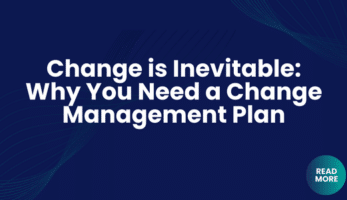Human Capital Management
5 Common Behaviors That Drive Pay Inequity

While many organizations treat pay equity as a numbers game, employers need to acknowledge that to minimize a wage gap, they need to identify the behaviors that contributed to it in the first place. Through our work in this space, Exude Human Capital has identified 5 common behaviors that either have or are at risk of unknowingly perpetuating wage disparities.
With any gap, there are two sides and consequently, there are behaviors that continue to advance those with privilege and behaviors that reinforce barriers for others.
- Using advancement to drive retention
- Allowing external candidates to negotiate starting salaries
- Ignoring embedded or artificial barriers to eligibility
- Qualification decisions are based on historical advancement opportunities
- Pay decisions based on previous salaries
Using advancement to drive retention:
It’s not uncommon for employers to reward employees at risk of leaving the organization with a title or pay increase, often issued as an in-place promotion as a reflection of an evolution of their previous role. When criteria for in-place promotions are applied inconsistently, the decisions are more likely to be informed by unconscious bias.
Allowing external candidates to negotiate starting salaries:
When organizations have internal equity through a set of standard criteria used for making pay decisions, negotiating with external candidates introduces another variable that is inconsistent with other evaluations.
Ignoring embedded or artificial barriers to eligibility:
Qualification or eligibility requirements that reflect more systemic inequities, ultimately continue to drive pay gaps within organizations. Some common examples of this are educational requirements, where underserved populations and groups without generational wealth are less likely to have the opportunity to complete advanced educational programs. Other embedded barriers may exist where required experience does not allow for a broad application of what that experience or skill representation could look like.
Qualification decisions are based on historical advancement opportunities:
Even when position qualifications have been defined, some hiring managers may define additional selection criteria based on biased factors. A candidate’s previous advancement or leadership opportunities may be a result of the unconscious bias of their previous managers and not of their abilities. Selection based on an individual’s perception of what an advancement path should look like perpetuates barriers to career and salary growth.
Pay decisions based on previous salaries:
While it is against the law to solicit the previous salary of a candidate, it is still a common practice to make pay decisions based on the candidate’s salary requirements. The result is similar in that the salary for a new role is based, at least in part, on the salary for the previous role.
In an equitable model, all pay decisions are based on a combination of the internal value of the role and the market value of the skills and experience for execution.
At Exude Human Capital our team of experts are here to share best practices as we review strategies that support your unique organization. We know that the best human resources consulting solutions are custom-designed to meet each client’s needs. For more information on Exude Human Capital Consulting and to schedule a complementary 30-minute consultation with one of our experienced professionals CONTACT US.







